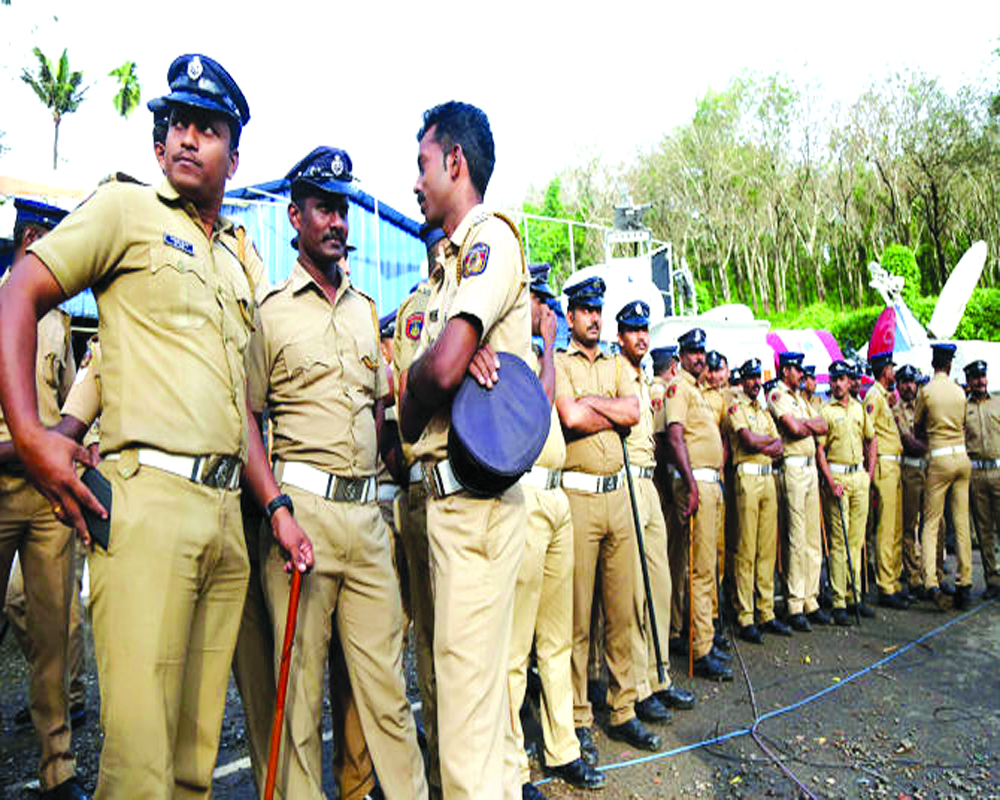Following new concepts of safety and security is imperative
Recently, there has been mounting pressure on the police and para-military forces to maintain round-the-clock surveillance after an upsurge in terrorist attacks and attempts at infiltration amid pandemic stress.
The Prime Minister's address for moving towards high-power police technology mission to equip the force with latest technologies exhibits remarkable concern for nipping violence plans of terrorists in the bud and modernise the police force.
It would provide a platform for multi-layered security cooperation that would deal with various issues related to terrorism -- right from funding of terrorist activities, policing cooperation, dealing with cyber threats, secrecy through enhancing technological innovations and tightening the border to maritime security information-gathering exercise. Cooperation and coordination in communication capabilities and management of security arrangements to deal with any kind of threat are the main objectives of his call.
Besides, a modernization of Police is also imperative given the possible threats from religiously-motivated bands of distraught minds. The Prime Minister has called for a smart way of policing and usage of interoperable and transferable technologies such as drones that would open a new gateway to meet complex security challenges.
Recent challenges to security of India bring to light an important fact that India needs to diversify its strategies to counter the challenges it faces from criminals, drug traffickers, naxals, smugglers and terrorists. Over the years a great deal of literature has appeared on India's police and the need for reforms. Policies are being made to enable the force to adapt to the challenging environment and efficiently implement recommendations suggested by the panels on reforms.
As the threats today are more severe and enemies more organised than ever before, new concepts of safety and security need to be followed. There has been a long debate about police reforms the National Police Commission recommended them in 1979. It suggested reforms in judicial inquiry processes, reducing political interference and the police adopting a more humane approach.
Earlier the government decision to appoint a new panel to look into the recommendations of the Law Commission, the National Police Commission, the National Human Rights Commission and the Vohra Commission provided a major ray of hope for the future prospect of policing. The Ribeiro Committee on Police reforms also made certain suggestions broadly along the lines of the NPC with some additional inputs.While submitting its report in 2000,the Padmanabhaiah Committee made many suggestions including the modifications in the selection process and the commissionerate system. In 2003, the Malimath Committee suggested speeding up the criminal justice process.
Prakash Singh, a former DG of UP Police, filed a PIL and based on that the Supreme Court gave vital directions which included merit-based, transparent appointment of DGPs for a minimum fixed tenure of two years, separating law and order and investigation jobs, setting up of a police complaint authority at the State and district levels, setting up of a Statesecurity commission and a national security commission.
The police also need to play an important role as crime preventer and in this regard, developing qualities such as high level ofdiligence, intelligence, dedication, determination and the ability to grasp complex situationsis a must. It is high time we realized that the police alone cannot stop crime; the entire society should make substantial efforts towards it. 'Sentinel on the qui vive' appears to be the only solution for protection against the new wave of terror we are experiencing.
(The writer is Bharat Gaurav Award winner and strategic affairs expert. The views expressed are personal.)
























